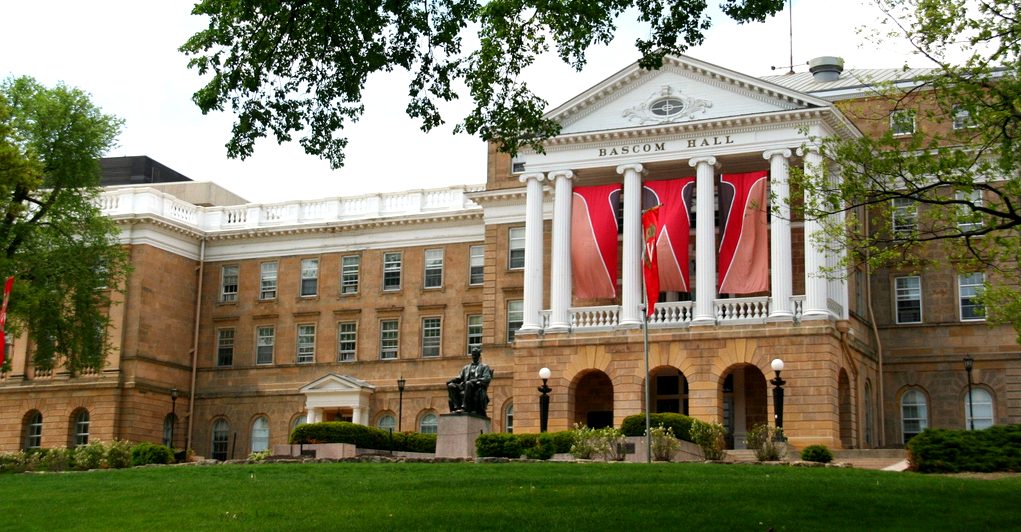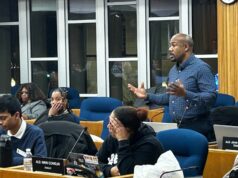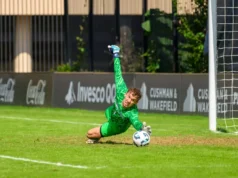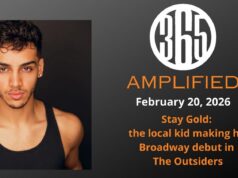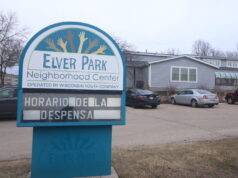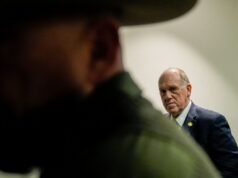A large group of UW-Madison Black Alumni, called “The Collective,” sent a 10-page open letter to UW-Madison administration yesterday expressing their disapproval and their concern for the continuous incidents at UW that create a hostile environment for people of color. The letter contained 10 recommendations to make life better for students of color on campus.
“As an alum, our goal is to be helpful and to not just focused on blaming and whose fault it is,” UW-Madison alumna Valyncia Raphael, who is part of a collective of black UW alumni that drafted a letter, tells Madison365. “Regardless of what has happened up to this point, we are here and we are ready to help and we’re not here to point fingers, but we’re saying, ‘whatever has been happening is simply not working. Let’s figure out what can work.’”
On October 29, 2016, a photo of a University of Wisconsin football spectator in a racially offensive costume went viral and the University responded. Black and African American alumni and their allies found the incident and the University’s initial response unacceptable. Through social media, alumni and their allies formed a collective and wrote a letter of concern to UW-Madison administration.

The letter, signed by more than 160 black UW alumnus, condemned the incident and response and requested a meeting during UW-Madison’s Homecoming weekend. The meeting’s purpose was to discuss ways to disrupt a pattern of recurring hate and bias incidents within the UW-Madison community, and inadequate or insensitive responses.
“After homecoming, we had the holidays – Thanksgiving, Christmas, and the New Year – and all of us work full-time, obviously, so It took us a little while to get this done,” Raphael says. “We were coordinating everything through e-mail and online and we had collected so much information.”
Raphael adds that the collective had to do a lot of research, too. “There are a lot of diversity plans that have already been submitted and published by the university so we wanted to make sure we knew what had already occurred and what has been tried,” she says.
Did the collective go and talk to black alumni who were students in the ’60s, ‘70s, and ‘80s to get their historical perspectives on the struggles of students of color on the UW-Madison campus?
“We did. And a lot of those conversations happened over Homecoming Weekend because there is so much nostalgia about that and we had plenty of ‘back-in-my-day’ kind of conversations,” Raphael says. “I had worked at the university up to July [of last year] so I was having conversations on projects related to my work with people from past generations, too. I had already collected a lot of the information from people who had worked with the university for a while.”

Black alumni expressed that the University’s stance must shift from reactive to proactive and that they and fellow alumni are willing to play a role in that progress. Over 40 alumni were involved in putting the 10 recommendations in the letter together. “There was a core group of five of us that really worked on the actual authorship, but in terms of what it is reflecting, it’s a really diverse array of perspectives and opinions and ideas and expertise that come out through the final document,” Raphael says.
The following 10 recommendations were sent to the UW administration yesterday
1. Improve communication about diversity, inclusion, and climate progress, programs and initiatives within the University as well as among University units, greater Madison and Wisconsin community, and alumni.
2. Intentionally include diversity and inclusion throughout the student experience, including during new student orientation and curriculum planning.
3. Require diversity and inclusion components throughout employee hiring, onboarding, and evaluation processes.
4. Update the Conduct Code to enable punishment of perpetrators of hate/bias, especially when student’s intent is not malicious yet the impact creates a racially hostile environment. Students should sign the Conduct Code.
5. Create a robust response and support protocol to hate and bias incidents that is at least as sophisticated and interdepartmental as the campus sexual assault response protocol; ensure campus structures support this work.
6. Address the psychological and emotional impact of hate and bias incidents and a racially hostile environment on students; 10 counseling sessions is likely not enough to do so.
7. Collect and share data on student learning outcomes related to diversity and inclusion.
8. Rethink alumni philanthropy to enable investments of time, talent, and cultural capital — not just financial commitments.
9. Work with other Predominantly White Institution Chancellors to share and implement strategies for uprooting systemic racism from institutions of higher education.
10. Provide a transparent network and methods for key stakeholders to obtain information about, as well as provide feedback and generate ideas to continue to improve upon, diversity and inclusion initiatives on campus.
All 10 recommendations were elaborated on in further detail in the 10-page letter sent to the UW administration yesterday.
“It was definitely hard to narrow this down to 10, but 10 is nice round number. We wanted to have something that was workable,” Raphael says. “I think these 10 recommendations moving forward give us a really solid game plan and priorities. In our letter, we requested to have a continuing conversation with them. We’re hoping for sustainable change and we want to be a part of it.”

